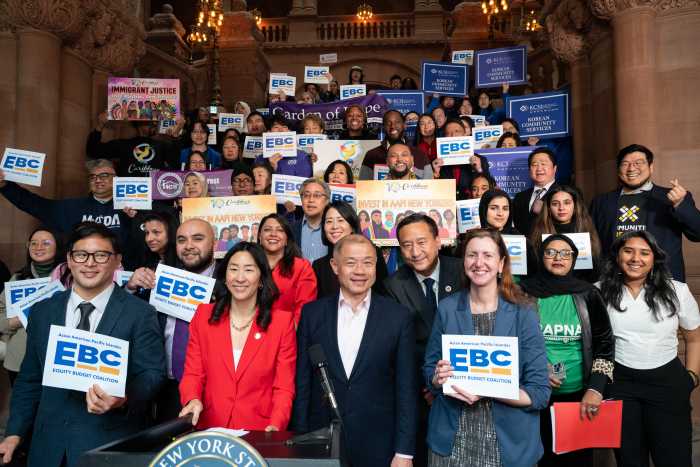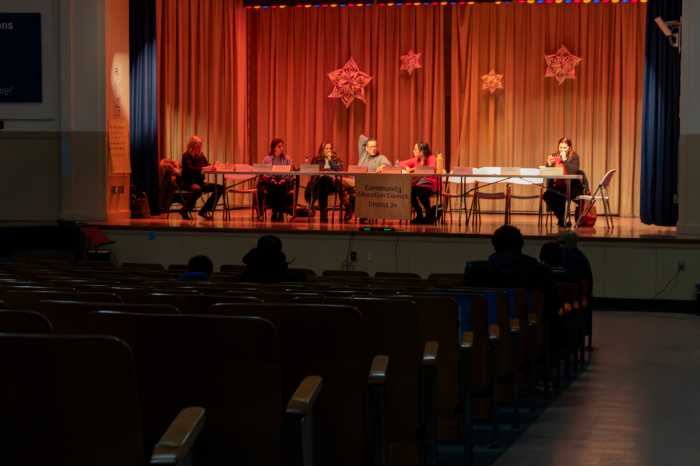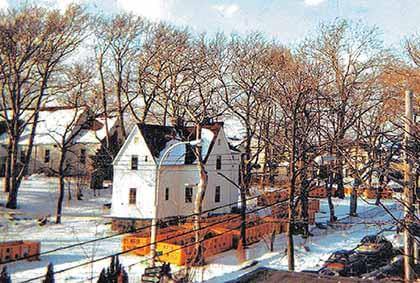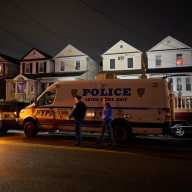By Gabriel Rom
While both Community Board 5 and Community Board 6 voted overwhelmingly against two major zoning text amendments, the few individual holdouts offered a window into an increasingly contentious relationship between Central Queens and City Hall.
At a Monday vote, the Queens Borough Board, which comprises of all community board chairmen and borough’s Council members, voted to disapprove the Mandatory Inclusionary Housing program and the Zoning for Quality and Affordability act.
The former would mandate that a share of new housing developments be permanently affordable, while the latter focuses on affordable senior housing developments, relaxing density restrictions and forcing developers to provide ample parking spaces.
At its monthly meeting on Nov. 11, Community Board 5, which covers the neighborhoods of Middle Village, Glendale, Maspeth and parts of Ridgewood, voted 36-1 with one abstention against the Quality and Affordability amendment.
Calling the amendment a “piece of laminate” on top of existing zoning regulations, Paul Kerzner, a CB 5 board member, said “it would negate the work that this board has done over the past 15 years in downzoning.”
Kerzner conjured images of six-story assisted-care facilities replacing the many one-story houses in CB 5’s zone.
“Developers will pick off block by block in every neighborhood in this community board,” he went on. “So you figure out how many half blocks are going to be gobbled up by developers from Manhattan.”
Toby Sheppard Bloch, the lone CB 5 vote in favor of the Mandatory Inclusionary Housing program, saw those concerns as somewhat overstated.
“One of the great advantages of living in a city, from both a social and economic perspective, is density,” he added. “I think that constructive increases in density—not just giving developers free rein—are good for the city.”
“I do think people in the community really value the character of the streets and they’re nervous,” he concluded.
Steven Goldberg, the chairman of CB 6’s Transportation Committee, which voted in favor of the Mandatory Inclusionary Housing program, called his decision to vote against his committee one of the most difficult moments of his 30-year career. Goldberg said he felt compelled to vote against it because of worries about, among other issues, government incursion into decisions that should remain local.
CB 6, which covers the neighborhoods of Forest Hills and Rego Park, voted against both amendments.
Claudia Valantino, vice president of the Forest Hills Community Civic Association, argued that the power of community boards across the city was coming under attack.
“Let’s not get lost in the weeds on this thing,” she said. “This has to do with top-down designations from City Hall telling communities what to do with parcels of lands in their communities.”
“This CB has stood and fought competently and conscientiously for more than 22 years for the principle of community review, but I haven’t seen wholesale government proposals like this since the Giuliani days,” she added.
But some members of CB 6, including much of its Transportation Committee, believe that the neighborhood must do its part for the city.
“I don’t quite understand the fear that this is going to completely change our neighborhoods,” said Peter Beadle, a member of CB 6’s Transportation Committee.
“We need affordable housing,” he added. “The cost of housing stock and rents is going up dramatically and no one will acknowledge that. This is why our committee got a unanimous approval, because we all recognize there is a huge need for this in our neighborhoods.”
While acknowledging that need, Robert Silver argued that mandating neighborhood economic diversity amounted to “social engineering” from City Hall.
“Rather than developing some of the undeveloped parts of the city and bring them up to a level where people will be happy to live there, we’re going to dumb down Forest Hills.”
Reach reporter Gabriel Rom by e-mail at grom@

































